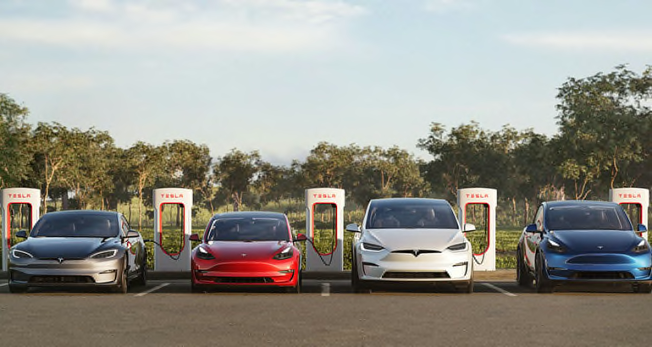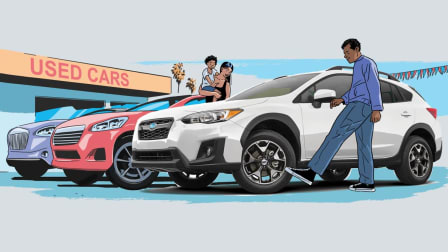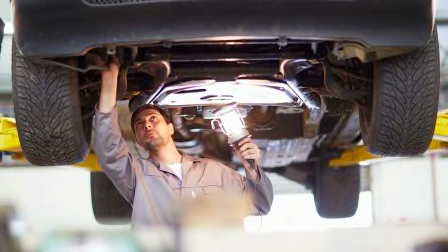Tesla Recalls Over 2 Million Cars Due to Autopilot Concerns
CR's experts say the automaker's fix is insufficient, based on our preliminary evaluation

Tesla has issued an over-the-air software update to its Autopilot active driving assistance (ADA) system for more than two million affected vehicles after a federal safety investigation determined that it’s too easy for drivers to misuse the feature.
The recall comes more than two years after the National Highway Traffic Safety Administration opened an investigation into Autopilot, following 11 crashes where Tesla drivers had Autopilot engaged before colliding with stationary first-responder vehicles.
The investigation found that the feature doesn’t do enough to prevent drivers from using Autopilot in situations where they are not in control of the vehicle, or where the system isn’t designed to be used. According to NHTSA, the automaker did not concur with the agency’s analysis but agreed to voluntarily administer a recall and provide a software update in the interest of resolving the investigation.

Photo: Tesla Photo: Tesla
CR's Experts Say More Changes Needed
A preliminary evaluation of Autopilot after the software update was installed on CR’s Tesla Model S suggests that the fix is insufficient, a CR safety expert says, explaining that it’s still too easy for drivers to misuse the feature.
“Although we welcome some of the changes that Tesla made as part of the most recent software update, including warning text that’s easier to read, the new software doesn’t go far enough to prevent misuse or address the root causes of driver inattention,” says Kelly Funkhouser, associate director of vehicle technology at CR’s Auto Test Center.
For example, we were still able to engage and use Autopilot after covering the in-car driver monitoring system camera. “Drivers can still use Autopilot if they’re looking away from the road, using their phone, or otherwise distracted,” says Funkhouser. “We know that drivers who have the ability to misuse a system such as Autopilot will do so unless the software prevents it,” she says. Our top-rated ADA systems use driver-monitoring cameras to prevent this kind of foreseeable misuse.
In addition, Autopilot will still disengage when drivers choose to steer the car themselves. By contrast, ADA systems from BMW, Ford, and Mercedes-Benz all allow for “collaborative steering,” which is when drivers can make steering inputs without disconnecting LCA. “There is no collaborative steering when the Autopilot system is active, which implies either the car is driving or you are—there’s no in-between,” says Funkhouser. “Drivers should be able to steer around a pothole or cyclist, or give extra space to adjacent vehicles without having to keep reactivating the system every time,” says Funkhouser.
CR will continue to evaluate the software updates and report on our findings. Tesla did not respond to CR’s questions about the recall.
The Cybertruck was not named in the recall, nor has Tesla’s so-called Full Self Driving feature, which has already been subject to a different recall.
The Details
Vehicles Recalled
• 2012-2023 Model S sedans
• 2016-2023 Model X SUVs
• 2017-2023 Model 3 sedans
• 2020-2023 Model Y SUVs
The problem: In certain circumstances when Autosteer is engaged, the prominence and scope of the feature’s controls may not be sufficient to prevent driver misuse of the SAE Level 2 advanced driver-assistance feature.
The fix: Tesla released an over-the-air software update, free of charge. Software version 2023.44.30 has been sent to vehicles starting on Dec. 12, 2023.
How to contact the manufacturer: Owners may contact Tesla customer service at 877-798-3752.
NHTSA campaign number: 23V838. Tesla’s number for this recall is SB-23-00-008.
Check to see whether your vehicle has an open recall: NHTSA’s website will tell you whether your vehicle has any open recalls that need to be addressed.
If you plug your car’s 17-digit vehicle identification number (VIN) into NHTSA’s website and a recall doesn’t appear, it means your vehicle doesn’t currently have any open recalls. Because automakers issue recalls often, and for many older vehicles, we recommend checking back regularly to see whether your vehicle has had a recall issued.
Stay informed about recalls that might affect your vehicle by using our Car Recall Tracker. Create a free account now to become a CR member.
More on ADAS Systems
Editor’s Note: This article, originally published Dec. 13, 2023, has been updated to include CR’s preliminary impressions of Tesla’s over-the-air software update.
Correction: Our Dec. 19, 2023, update incorrectly noted that the software update was installed on CR’s Tesla Model 3; the software was installed on our Model S.




















